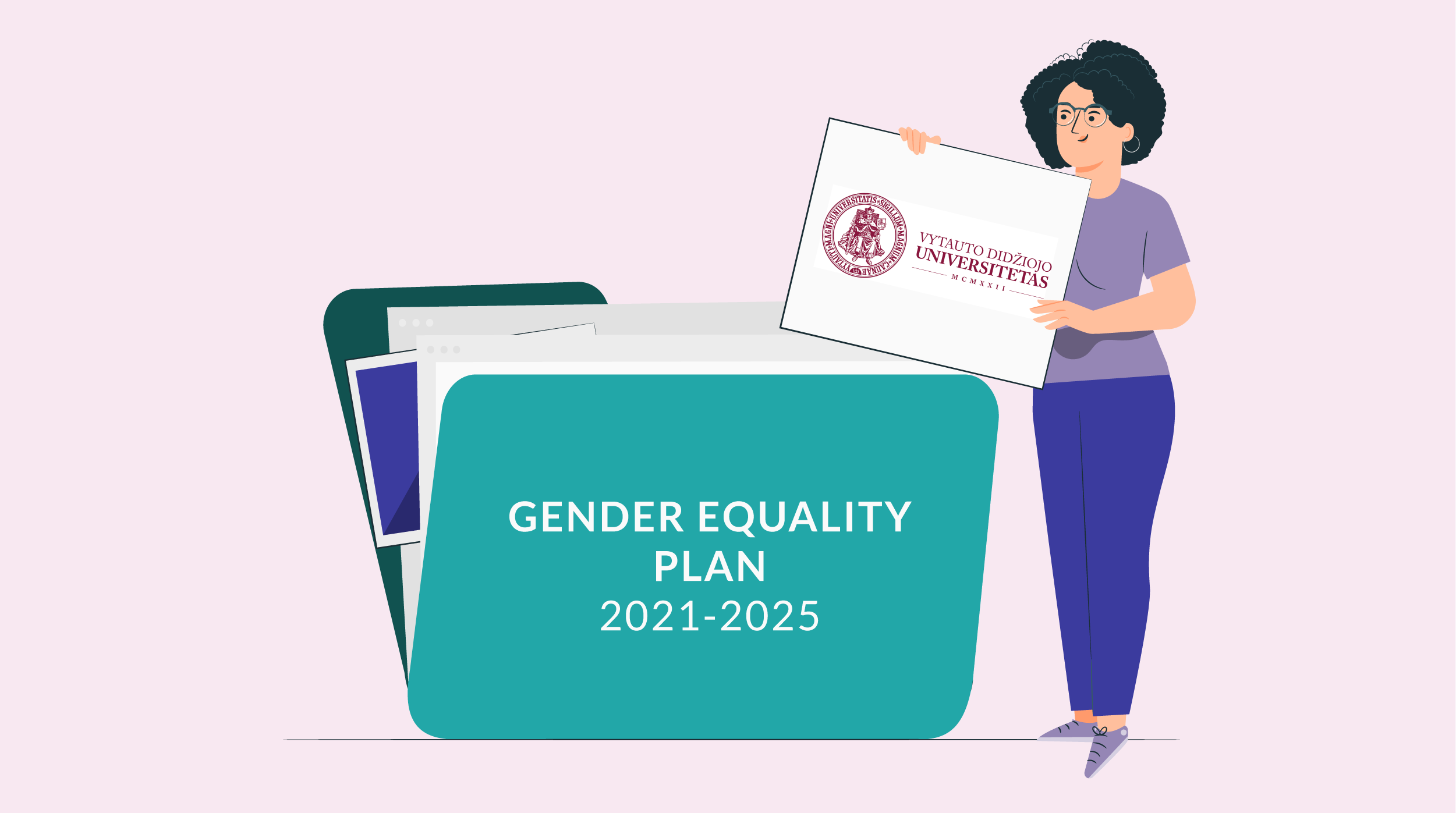VMU strives to position itself amongst the most liberal universities in Lithuania and Europe, following artes liberales principles, encouraging personal growth and multifaceted education in a broader sense, creating favourable conditions for career development, and promoting respect for human rights and equal opportunities for all community's members.
The Gender Equality Plan reinforces VMU's commitment to ensuring gender balance by implementing cultural, systemic institutional, and structural changes within the organisation. The document has been developed in synergy and complementarity with national and international laws, policy regulations, and programs, such as the Lithuanian Law on Equal Opportunities for Women and Men, and key university documents and institutional policies, e.g. the VMU Strategic Plan for 2021-2027.
Following those guidelines and recommendations, VMU shaped its Gender Equality Plan to fit the specific university's situation. The GEP addresses six main areas of activity, plans specific goals and indicators to monitor the expected results, and identifies the actors and bodies responsible for the implementation.
In particular, VMU GEP’s six objectives are:
I. To strengthen gender equality policy by integrating gender dimension into University’s strategic governance documents, establishing institutional gender equality structures and positions, conducting data monitoring. The university's management and faculties staff will revise strategic documents and process of implementation to strengthen the gender equality dimension and institutionalise the collection and analysis of gender-disaggregated data.
II. To create an inclusive and equality-oriented organisational culture through university’s internal and external communication as well as collaboration with social partners. VMU aims to raise awareness and communicate the importance of gender equality, diversity, and anti-discrimination policies, ensure gender balance in management, decision-making, and research, and reinforce cooperation with national and international stakeholders.
III. To create an organisational culture that ensures the socio-psychological well-being of community members, facilitates the combination of work, studies and family, prevents harassment and discrimination. To this end, VMU will conduct regular surveys for all students and employees about their well-being, career opportunities, organisational environment and promote training, consultations and events on sexual harassment prevention, work-life balance, and career growth.
IV. To implement anti-discrimination and equal opportunities policies fostering gender balance-based decision-making and leadership, supporting career advancement and ensuring transparency in the procedures of recruitment and candidate selection for studies. Measures and procedures for selecting candidates for management and decision-making positions will be made more transparent and gender-balanced to ensure non-discrimination and equal opportunities.
V. To reduce horizontal segregation and gender disbalance in specific fields of science and faculties. Each university department will carry out marketing and communication campaigns to encourage students to choose majors with visible gender imbalance (e.g., STEM and social work) and provide support and mentoring for current students.
VI. To integrate the gender dimension into studies and research, promote gender equality in research, improve career opportunities for women researchers. VMU strengthens its commitment to regularly conduct content analysis in all levels of studies and identifies possibilities for better integration of the gender dimension in its university programmes and activities.
You can read VMU's Gender Equality Plan here.
For further information about the GEP, contact Natalija Mažeikienė natalija.mazeikiene@vdu.lt


